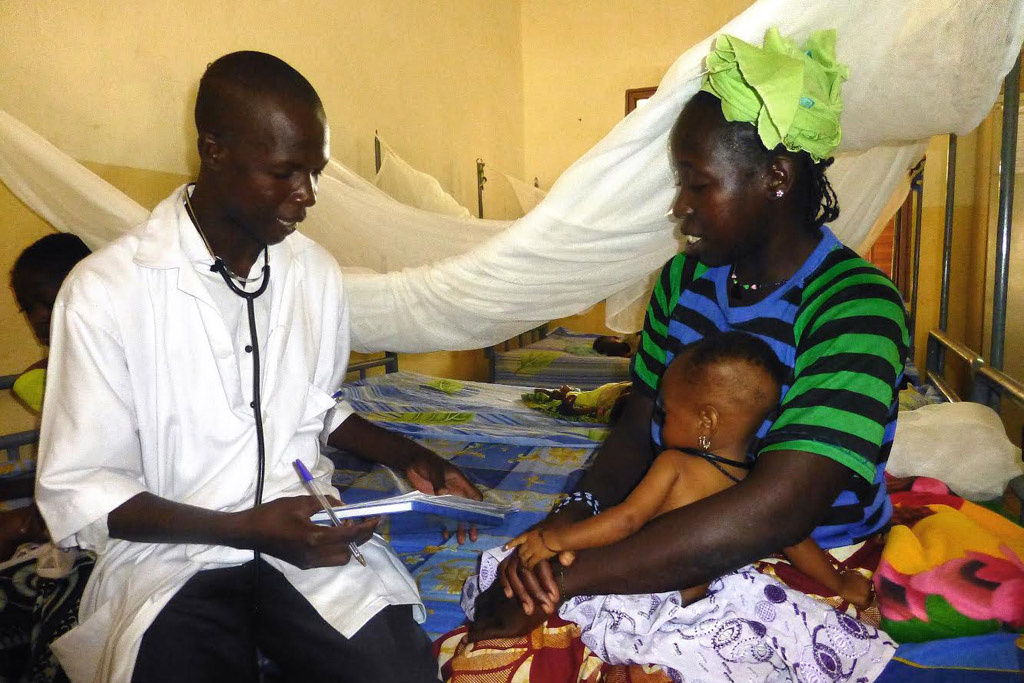Mali: UN, partners launch humanitarian appeal as relief efforts continue
The United Nations Office for the Coordination of umanitarian Affairs (OCHA) has joined with partner agencies to launch a multy0million dollar appeal for urgent funding for aid operations in Mali amid the country’s ongoing crisis, a spokesperson said today.

At a health facility in Ségou, central Mali, a mother and her child are examined for signs of malnutrition.
"Despite the progress in reconstructing and stabilizing conflict-affected areas in the north of Mali, the persisting insecurity affects the resumption of basic social services and the restart of economic activities. Hundreds of thousands of people still need humanitarian aid to survive" said said David Gressly, UN Humanitarian Coordinator in Mali.
The Government in Mali has been seeking to restore stability and rebuild following a series of setbacks since early 2012, including a military coup d'état, renewed fighting between Government forces and Tuareg rebels, and the seizure of its northern territory by radical Islamists.
Throughout much of this time, Mali’s north has remained restive and, in recent months, the UN Multidimensional Integrated Stabilization Mission (MINUSMA) and its “blue helmets” have come under repeated violent attack.
Addressing journalists in Geneva, OCHA’s Jens Laerke noted that at the peak of the crisis, more than 500,000 people had left the north of Mali to seek refuge in the south or in neighbouring countries. Although nearly 400,000 had already returned, they continued to face challenges in restarting their lives as communities had become more vulnerable, livelihoods had deteriorated, and social services were working only partially, especially in rural areas.
At the same time, the spokesperson warned, Mali continued to face a high level of food insecurity and malnutrition – a problem affecting countries throughout Africa’s Sahel region. According to UN estimates, nearly 2.6 million people in Mali, or 15 per cent of the total population, will suffer from food insecurity this year while more than one in 10 children would be affected by acute malnutrition.
To support an exit to the crisis, Mr. Laerke added, the UN’s three-year humanitarian response plan would move forward along a two-pronged approach meeting the needs of the most vulnerable people while at the same time working to strengthen livelihoods and community resilience.
In addition, the plan focuses on reinforcing the abilities of national partners and state structures in an effort to lay the foundations for a sustainable transition from humanitarian response to development initiatives.
Source: United Nations
- 336 reads
Human Rights
Fostering a More Humane World: The 28th Eurasian Economic Summi

Conscience, Hope, and Action: Keys to Global Peace and Sustainability

Ringing FOWPAL’s Peace Bell for the World:Nobel Peace Prize Laureates’ Visions and Actions

Protecting the World’s Cultural Diversity for a Sustainable Future

Puppet Show I International Friendship Day 2020

